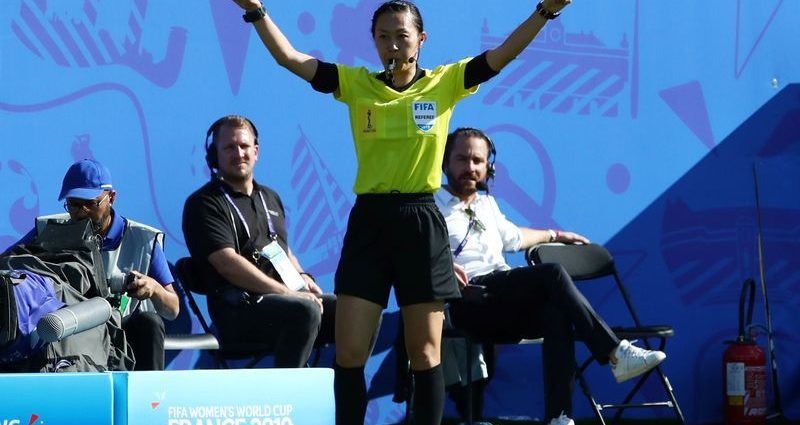
TOKYO (Reuters) – Japanese Yoshimi Yamashita, one of a trio set to make history this autumn in Qatar as the first women referees to officiate at a men’s World Cup, feels both pressure and excitement at the prospect of being a pioneer.
“We have to consistently see female referees (on the pitch) to normalise it. I feel pressure to earn everyone’s trust and make that happen,” the 36-year-old told a Tokyo news conference on Thursday.
She also understands the benefits of her time in the spotlight, saying that she feels that her very presence in a traditionally male-dominated event shows that new possibilities are opening up for women.
“There are barely any female referees in the Middle East, and it would be wonderful to see even just one more female referee after the World Cup,” she said.
Qatar will not be the first place that Yamashita will break new ground in the sport.
On top of officiating at the 2019 Women’s World Cup and the Tokyo 2020 Olympic Games, she became the first woman to referee matches in the J-League and Asian Champions League.
However, inclusion for Qatar does not guarantee that she or the two other women on the referee list – France’s Stephanie Frappart and Rwanda’s Salima Mukansanga – will be blowing the whistle during matches. They could be designated as “fourth officials” who assist from the sidelines.
But whether she makes it on the pitch or not, Yamashita’s preparation for the global sporting showpiece will not change.
“I’m really conscious of the speed I make split-second decisions. I have to continue training that muscle as the World Cup draws closer, and be prepared to adjust to speedy developments,” she said, adding that she has been practicing by watching videos of previous matches.
“I have been inspired by each and every referee, and they all have qualities I’d like to have.”
Describing herself as 1% nervous and 99% excited, she demurred when asked if there were any particular players whose matches she hoped to officiate.
“That’s a secret,” she said with a chuckle.
(Reporting by Sakura Murakami; editing by John Stonestreet)

